Former Tesco Express manager Mike Dorey has blended discipline with personality to create a uniquely successful village store
It’s not often that the words Tesco Express and independent store are deployed in any positive sense within the same sentence.
Except, that is, in the picturesque South Cotswold village of Eastcombe in Gloucestershire, where a former Tesco Express manager turned independent c-store owner is proving that great things can be borne out of a careful balance between the two concepts.
Less than two years after Mike and wife Debbie took up the reins of Londis Eastcombe stores, sales are in double-digit growth, and the pair have become one of the community’s most highly prized commodities.
The circumstances that led the Dorey family, which also includes Debbie’s mother Colleen and the two children, to set up shop in Eastcombe bear recounting.
STORE FACTS
Eastcombe Stores
Store size: 1,200 sq ft
Staff: Six
Weekly turnover £19,000
Energy efficiency: Doors on chillers, LED ceiling lights
“We weren’t originally looking to buy a store, although doing so had always been a dream of Mike’s,” explains Debbie. “We were actually looking to move to a slightly bigger house but while searching the property websites one day, I accidentally put in the wrong filters and came up with commercial rather than residential properties for sale. This store was attached to a beautiful five- bedroom house and I just fell in love. When Mike came home that night I showed him immediately. He was a bit shocked at first, but after some serious thought and discussion we decided to go for it.”
While Mike believes in the saying ‘if your dream doesn’t scare you it isn’t big enough’, the reality of moving house and establishing a new business was not just scary, it was downright terrifying. While his 25-year career with Tesco - the last five of which were spent managing a number of Express outlets - had bestowed him with a deep understanding of the world of grocery and convenience retailing, nothing could have prepared him for that first day as a store owner.
“The previous owners literally handed us the keys, wished us luck and drove off. We had no idea how to work the bake-off oven, we’d never met any of the customers, let alone the staff before, and we couldn’t open the till or safe,” Mike says.
However, this initial floundering certainly didn’t last long, and it was only a matter of weeks before Mike was able to start using the “discipline” instilled in him by Tesco to “pull the business up by its socks”.
Two months in, and with the help of Londis, the pair invested in a £25,000 refit including the addition of smart energy saving doors on chillers and a remodelling of the rear of the store to allow customers to navigate the aisles more easily.
Using the Londis planogram in tandem with his own understanding of what constitutes a strong convenience range, Mike conducted a full-scale range review, erasing a large swathe of slow-selling lines and bringing in more than 400 new items mainly from the fresh and chilled categories which had been under-represented before.
This brave move helped transform the store from one which met the immediate needs of its local community to a destination grocery store that now attracts shoppers from surrounding villages who would previously have just driven into the nearby town of Stroud.
Mike admits that investing so significantly and suddenly in fresh and chilled was a bit of a risk with regards to wastage, but it’s clearly paid off.
“The range, which also includes an extended bake-off offer, was new to shoppers so at first there was quite a bit of waste, but once awareness of it grew and people learned that they could consistently rely on us for good quality fresh products, the waste levels dropped down.
“In my opinion investing in waste is key if you want to succeed in this industry. In the long term it will help you to build a loyal customer base as over time waste will come down and you’ll be left with stronger sales and profits.” He’s certainly talking from experience. Sales of bake-off products alone have flown from about £400 a week to more than £1,200, while overall weekly sales have nearly doubled to almost £20,000.
Mike has also invested heavily in promotions, a fact which he also credits for helping to attract a younger customer base. “When we first took over our customer base was mainly more wealthy elderly locals, but now we’re seeing an increasing number of young couples popping in to buy groceries and wine. We recently introduced a promotional wine tower at the rear of the store. Every bottle on the tower costs £5.50. Customers think it’s great as it’s so simple to understand and helps them to budget.”
In addition to the aforementioned wine tower and clearly marked promotional bays at the front of the store, Mike also uses strategically-placed pricemarked packs to add to its competitive feel.
Another Tesco philosophy that Mike employs is not holding on to stock. He has doubled the number of Londis deliveries that the store receives from two a week to four and almost everything goes straight out onto the shelves where it sells almost as rapidly. The core range is then supplemented with a few local products such as fresh meat, seasonal fruit, vegetables and honey.
“A great shop floor starts in the back room. Control is essential here,” says Mike. The stock room, it has to be said, is one of the most organised C-Store has seen, helped by the fact there simply isn’t very much there - it’s all out on the shop floor.
Mike still chooses to do his orders manually, via the Londis Webshop system, rather than go fully automated. It takes more time, he admits, but it allows him “total control”.
“Tesco is such a disciplined organisation and I think I’ve brought an element of that here,” adds Mike. “However, being disciplined doesn’t require you to be robotic; we have lots of fun, too, and our customers value that,” he adds.
While greater discipline clearly accounts for much of the store’s success, Mike and Debbie’s personal touch is a key factor. “When our customers walk through the door we want them to feel happy, comfortable, and to have a laugh,” adds Debbie. “We have forged some genuinely strong relationships with our local customers and it makes a huge difference. But you have to be good at reading people - you can’t banter with everyone and there are often sad occurrences. Owning a store in a small village with a high concentration of elderly people does mean that you get sad days when people fall ill or pass away.”
Adds Mike: “Being so involved in our shoppers’ lives and the community is such a different experience from working in a Tesco Express - that’s conveyor-belt retailing. As a Tesco Express manager you don’t really know your customers, and aside from donating money to various good causes you don’t really get involved in the local community.”
The pair now give up much of their free time to the community. Debbie volunteers as a teaching assistant at the local school, where Mike is also a governor, and they regularly take on local kids for work experience.
“I’ve found the experience of becoming an independent retailer incredibly humbling. Before, Tesco used to pay my salary, whereas now it’s coming directly from my customers. We depend on them just as much as they do on us. That’s why we are so keen to give back and help our customers where we can.”
Promoting like Tesco
Mike believes retailers must be willing to compromise a little on their margins. “The biggest barrier to growth in convenience is an unwillingness to sacrifice margins for promotions in order to chase footfall,” he says. “Eventually, these two will help you to build those margins back up again. That’s the Tesco ethos. Drive sales through volume and keep prices competitive. It’s all about getting your shoppers to trust you. Yes, it will cost you money at first, but it will pay off.” In addition to the £5.50 wine tower, Mike has also introduced a ‘Three for £5.50’ offer on local ales. “The local ales section now makes about £700 a week. The margins on it aren’t that high, but it’s such a vast footfall driver and it brings people in from all around.”















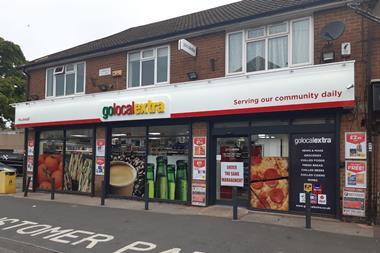
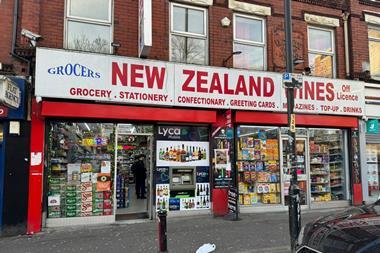
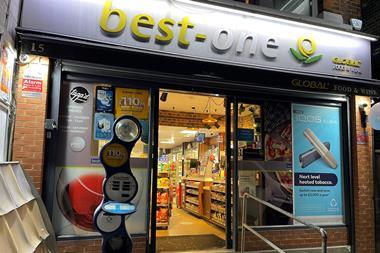
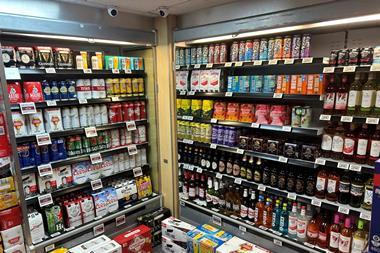
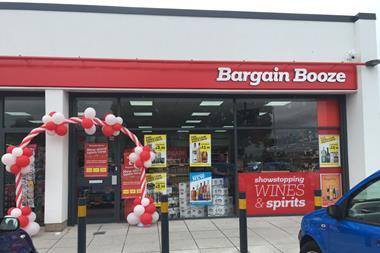
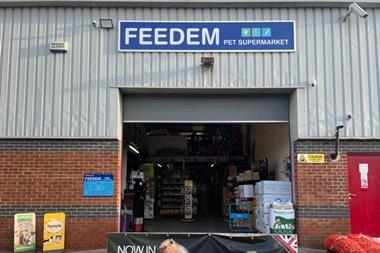



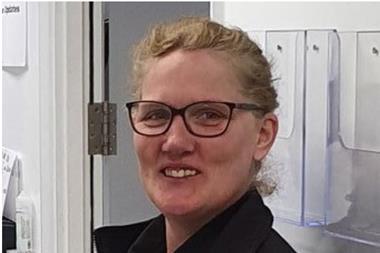
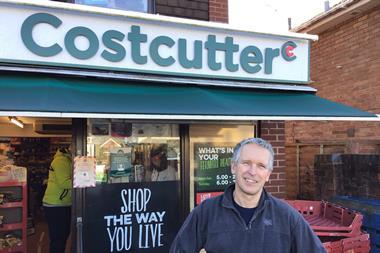
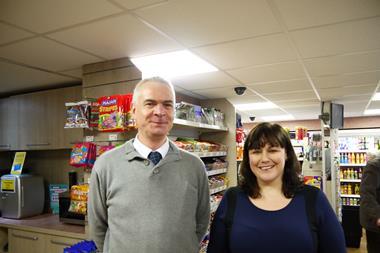
No comments yet